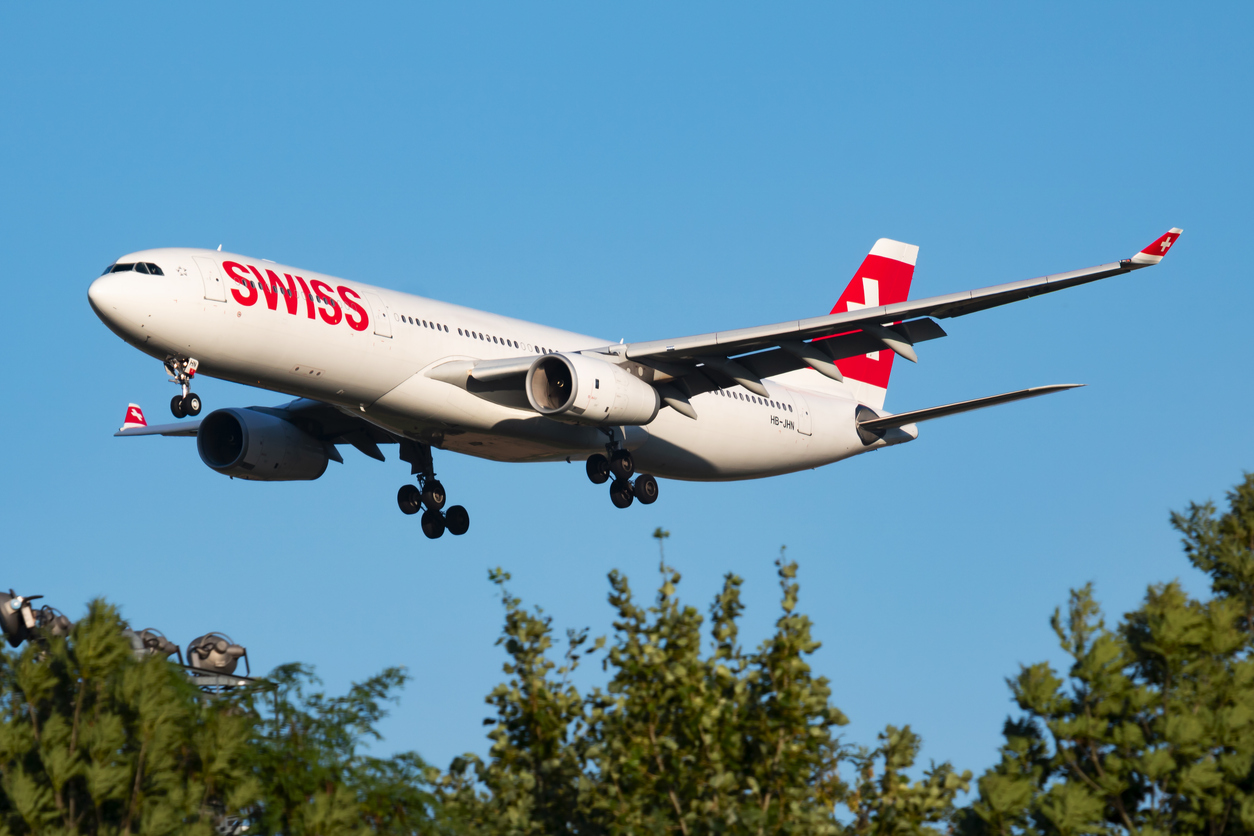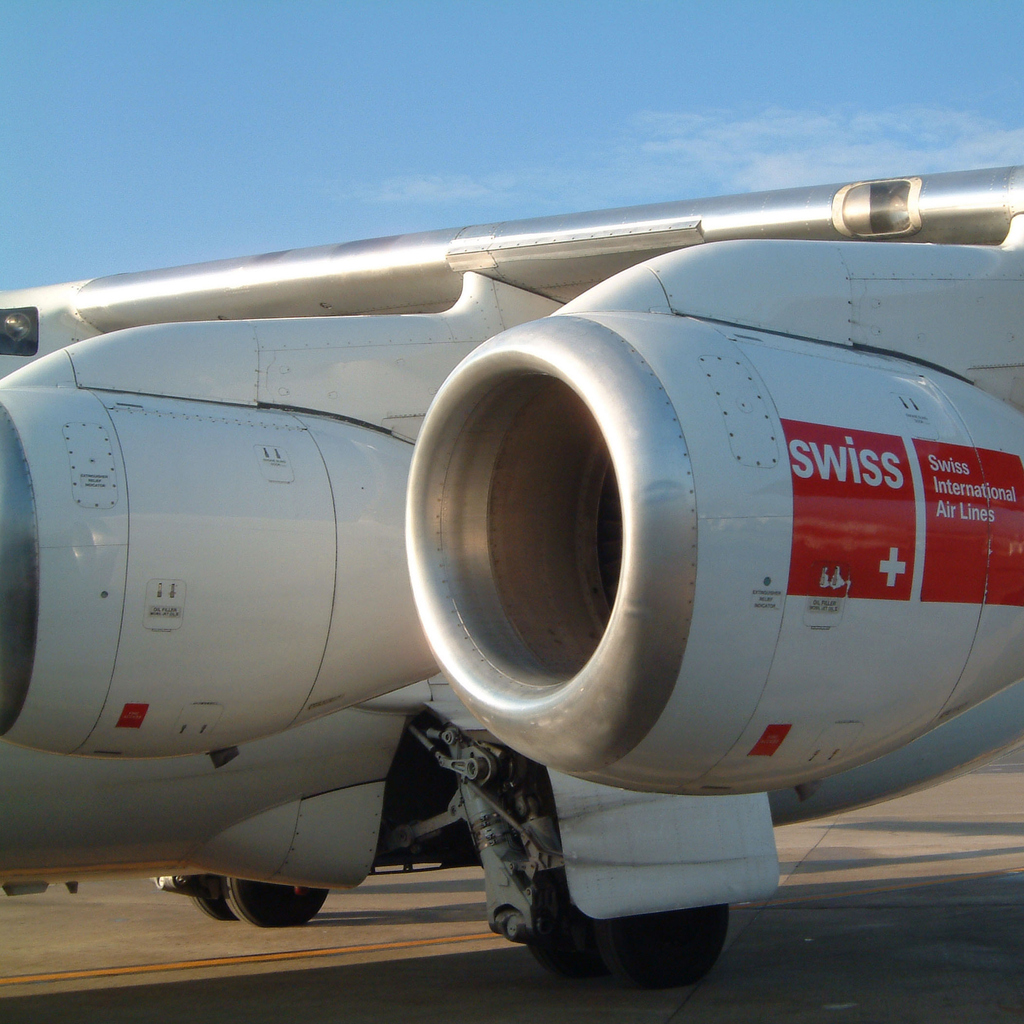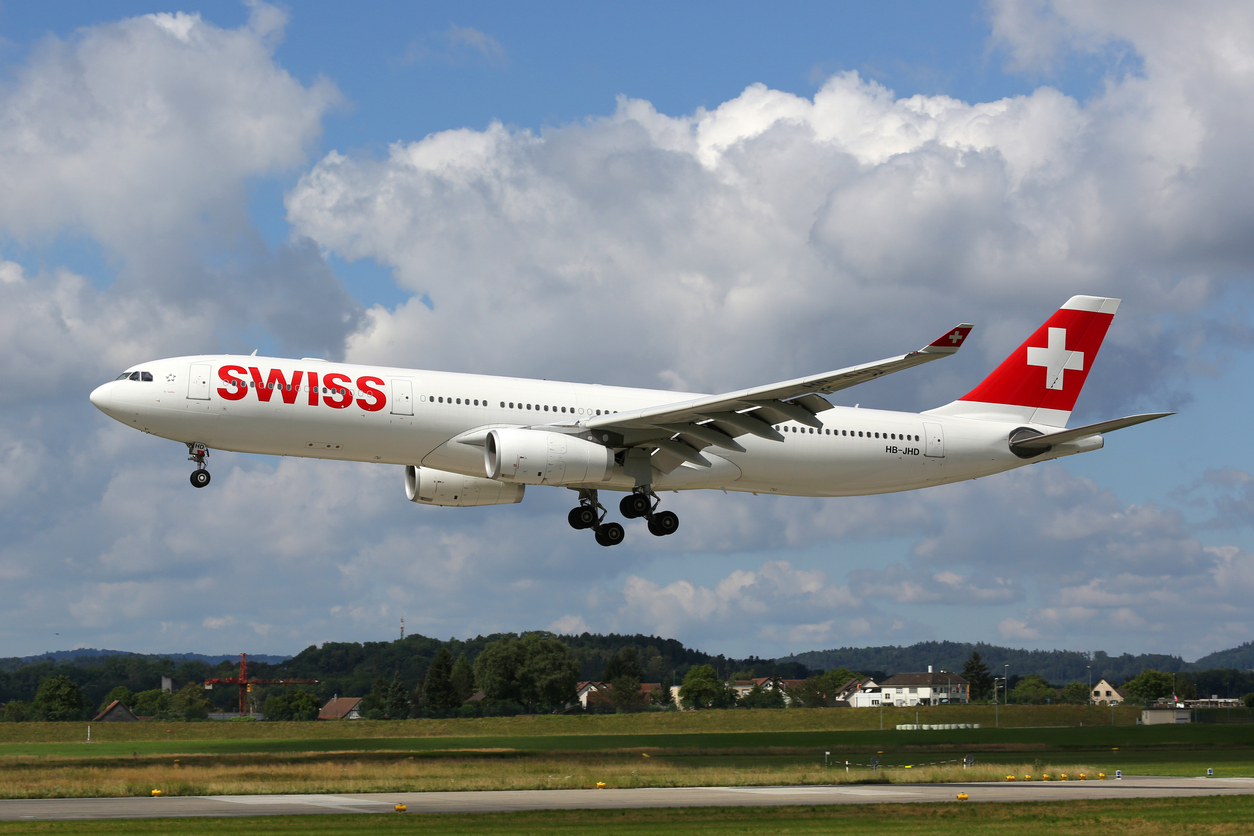
Q1. What have Swiss Air done over the past 5 years to improve fuel efficiency and reduce emissions?
1. Fleet Modernisation
• Over the past five years, Swiss Air has been updating its fleet with newer, more fuel-efficient aircraft like the Airbus A320neo.
• These advanced planes feature state-of-the-art technology designed to minimise fuel consumption and lower emissions.
Click HERE for more information.
2. Operational Efficiency
• Swiss Air have optimised their flight routes, improved load management, and adopted more efficient flight procedures.
• These adjustments have led to reduced fuel usage and fewer emissions, contributing to the airline’s overall sustainability goals.
3. Sustainable Aviation Fuel (SAF)
• As a leader in the use of sustainable aviation fuels, Swiss Air use fuels made from renewable resources like used cooking oil.
• These impressive fuels can reduce CO₂ emissions by up to 80% compared to traditional jet fuel.
• By partnering with Synhelion, Swiss Air are also exploring innovative fuel production methods.
Click HERE for more information.
4. Emissions Reduction Targets
• Swiss Air aims to halve its net CO₂ emissions by 2030 and achieve carbon-neutral flights by 2050.
• These goals are supported by significant investments in new technologies and climate protection initiatives.
Click HERE for more information.
5. Green Ground Operations
• Since 2019, Swiss Air has been using green energy for its ground operations and plans to make all ground activities carbon-neutral by 2030.
• This initiative minimises overall environmental impact from every level, further promoting sustainable practices.
Click HERE for more information.
Q2. What sustainable fuels are burned by Swiss Air?
Swiss Air’s Use of Sustainable Fuels: A Commitment to a Greener Future
At Language Xchange Ireland, we value sustainability and are inspired by companies like Swiss Air, which are leading the way in environmental responsibility. Here’s how Swiss Air have been enhancing fuel efficiency and reducing emissions with sustainable aviation fuels (SAF).
1. Biogenic Waste Fuels
• Swiss Air has been using SAF made from biogenic waste, such as used cooking oils.
• These fuels can reduce carbon dioxide emissions by approximately 80% compared to traditional fossil fuels, making a significant impact on the airline’s sustainability efforts.
Click HERE for more information.
2. Innovative Solar Kerosene
• In a pioneering move, Swiss Air has partnered with Synhelion to develop and use solar kerosene.
• This cutting-edge fuel is generated by utilising concentrated solar heat to produce syngas, which is subsequently transformed into kerosene.
• This process is almost carbon-neutral, making it a ground-breaking step towards sustainable aviation.
• Swiss Air intends to be the pioneering airline to employ solar kerosene, with a substantial increase in its use projected for the near future.
By implementing these sustainable fuel initiatives, Swiss Air is not only improving fuel efficiency but also significantly reducing its carbon footprint. Without a doubt Swiss air are setting a commendable example in the aviation industry

Q3. What recycling efforts are being carried out by Swiss Air as part of their carbon offset programme?
Swiss Air’s Recycling Efforts and Carbon Offset Programme
As part of their comprehensive sustainability strategy, Swiss Air actively participate in various recycling efforts to reduce their environmental impact. These initiatives are part of their broader carbon offset program, aimed at mitigating the effects of aviation on climate change.
1. In-Flight and Ground Operations Recycling:
• Swiss Air has implemented extensive recycling programs both in-flight and in their ground operations.
• Onboard, they focus on separating and recycling waste such as plastics, paper, and metals.
• They have also made strides in reducing single-use plastics by replacing them with more sustainable materials wherever possible.
Click HERE for more information.
2. Carbon Offset Projects:
• Swiss Air’s carbon offset program supports several global climate protection projects.
• These include renewable energy projects, reforestation efforts, and community-based initiatives such as clean cookstoves and water purification systems.
• These projects not only offset CO₂ emissions but also promote biodiversity and improve living conditions in local communities.
Click HERE for more information.
3. Sustainable Aviation Fuel (SAF):
• To further enhance their sustainability efforts, Swiss Air is increasingly using Sustainable
Aviation Fuel (SAF).
• SAF is produced from renewable resources and significantly reduces the carbon footprint of flights compared to conventional jet fuel.
• This initiative is part of their commitment to achieving net-zero CO₂ emissions by 2050.
Click HERE for more information.
At our language exchange school in Ireland, we believe in fostering a community that values sustainability and environmental responsibility. By highlighting the efforts of companies like Swiss Air, we aim to inspire our students to be more conscious of their environmental impact and to take proactive steps in their own lives

Q4. What is Swiss Air’s Sustainability and Carbon Reduction Plan for the next 5 years?
Swiss Air’s 2-5 Year Plan on Sustainability and Carbon Reductions
Swiss International Air Lines (Swiss Air) has outlined an ambitious sustainability and carbon reduction plan to be implemented over the next 2-5 years. The airline is committed to achieving significant environmental improvements, aligning with global efforts to combat climate change.
Key Objectives:
1. Reduction of CO2 Emissions:
• Swiss Air aims to reduce its carbon footprint by improving fuel efficiency and optimising flight operations.
• The goal is to achieve a 20% reduction in CO2 emissions per passenger by 2025.
Click HERE for more information.
2. Fleet Modernisation:
• The airline plans to invest in newer, more fuel-efficient aircraft.
• These modern planes not only consume less fuel but also produce fewer emissions, contributing significantly to overall sustainability goals.
Click HERE for more information.
3. Sustainable Aviation Fuels (SAF):
• Swiss Air is increasing its use of sustainable aviation fuels, which can reduce carbon emissions by up to 80% compared to traditional jet fuels.
• The airline aims to incorporate SAF in a substantial portion of its operations within the next five years.
Click HERE for more information.
4. Operational Efficiency:
• Enhancements in flight operations, including optimised flight paths and more efficient ground operations, are central to Swiss Air’s strategy.
• These improvements are designed to minimise fuel consumption and reduce environmental impact.
Click HERE for more information.
5. Offsetting Carbon Emissions:
• For emissions that cannot be eliminated, Swiss Air is committed to investing in certified carbon offset projects.
• These projects focus on reforestation, renewable energy, and community-based initiatives that help balance the airline’s carbon output.
Click HERE for more information.
6. Innovative Technologies:
The airline is exploring cutting-edge technologies such as electric and hybrid-electric aircraft for short-haul flights. Research and development in this area are crucial for long-term sustainability.
Click HERE for more information.
7. Engagement and Transparency:
• Swiss Air is dedicated to transparency in its sustainability efforts, regularly publishing updates and reports on progress.
• The airline also engages with passengers, encouraging them to participate in carbon offset programs and raising awareness about sustainable travel options.
Through these comprehensive measures, Swiss Air aims to play a leading role in the aviation industry’s transition towards a more sustainable future, ensuring that air travel remains compatible with environmental stewardship.

Carbon Offset Program in Thomastown
Starting September 1, 2024, Language Xchange Ireland (LXI) will reimburse schools for the cost of their Airline Carbon Offset program. This initiative encourages clients to consider carbon-neutral travel and sustainability, while neutralizing the additional cost for schools. EU schools can benefit from this ‘Green Travel’ option within the Erasmus Plus Grant arrangement. To participate, schools book their flights, purchase the Carbon Offset from the airline, and send proof to the LXI office. The Carbon Offset Airline Fee will then be reimbursed in the final invoice for the program in Ireland with LXI. This effort supports the local environment and helps offset everyone’s carbon footprint.
For more detailed information on Swiss Air’s sustainability initiatives, you can visit their official sustainability page.
If you would like to hear more about our thoughts on sustainability click HERE to see our sustainability news feed!
'Carbon neutral = carbon cost neutral!'
Tags: Swiss Air sustainability, Swiss Air fuel efficiency, Swiss Air emissions reduction, sustainable aviation fuel, SAF Swiss Air, Swiss Air carbon offset, Swiss Air recycling, Swiss Air environmental initiatives, Swiss Air net zero goal, Swiss Air fleet modernizatio